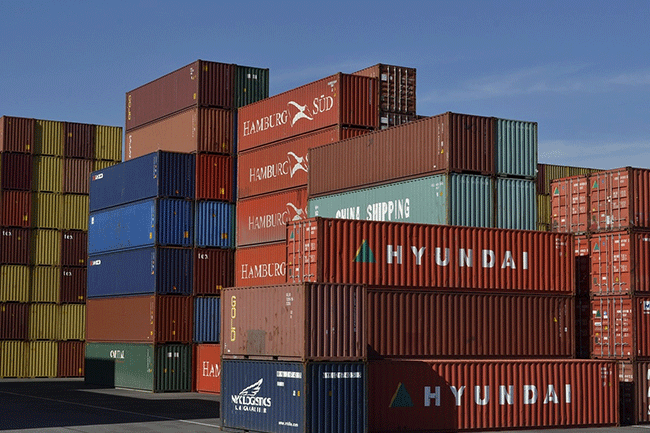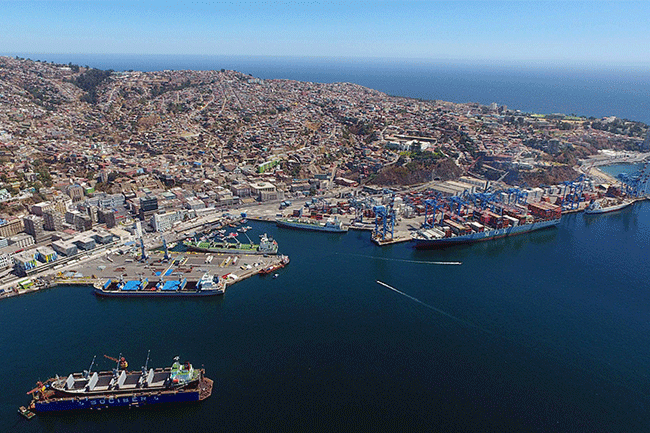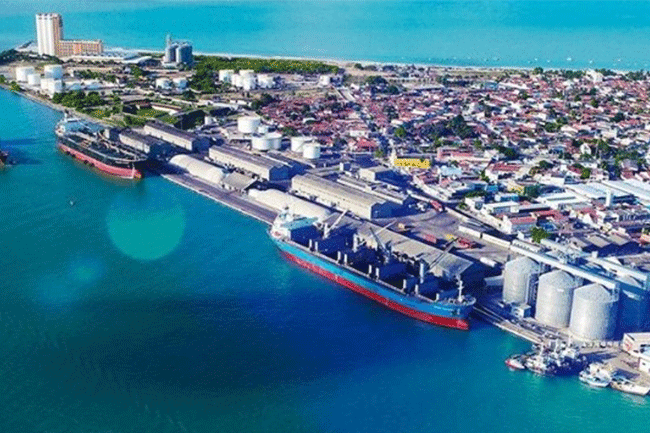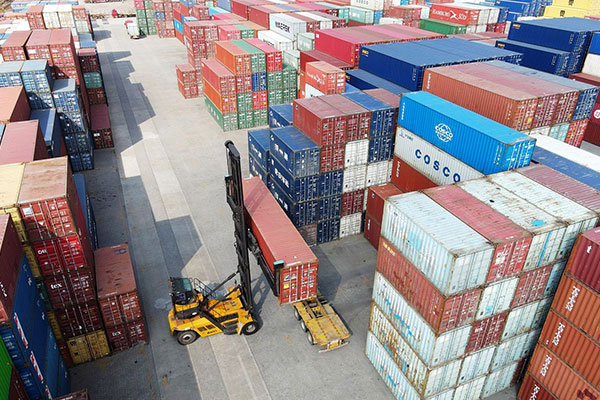- Shanghai Zhongshen International Trading Co., Ltd. – Your reliable partner with 20 years of import/export agency service expertise.

Italian Biscuit Imports: Growth Opportunities in the Chinese Market and the Need for Professional Agency
In recent years, Chinese consumers’ appetite for high-quality imported foods has kept climbing. According to 2023 data from the General Administration of Customs of China, food imports from Italy for January–October rose 21 % year-on-year; bakery products (biscuits included) accounted for 35 % of the total, making them the fastest-growing sub-category. Italian biscuits—celebrated for time-honored craftsmanship, premium raw materials such as Sicilian pistachios and Amalfi lemons, and the EU’s stringent food-safety standards—are now staples on the shelves of China’s upscale supermarkets andCross-border E-commerceand are favored by imported food distributors. However, the import process involves multiple steps such as documentation compliance, logistics coordination, and customs supervision; non-professional handling can easily lead to customs clearance delays, increased demurrage charges, or the risk of cargo return. It is essential to choose a partner with extensive experience.Import Agent ServicesService providers are the key for companies to reduce costs and control risks.
Core Service 1: End-to-end document processing, ensuring zero-defect compliance
Documentation is the “l(fā)egal proof” of import trade; its accuracy directly affects customs-clearance efficiency and corporate credit. For importing Italian biscuits, a professional agent must focus on the following documents:
- Commercial Documents: Including the Commercial Invoice, Packing List, and Bill of Lading. Verify that the product names, specifications (e.g., gram weight, flavor), and quantities match the contract, with special attention to the “clean” status of the Bill of Lading (Clean B/L) to prevent any remarks from hindering bank negotiation or customs inspection.
- Official documents: Must be issued by an official Italian authority.Origin Certificate(Certificate of Origin, usually FORM E or a general certificate of origin) to benefit from the tariff preferences under the China-EU trade agreement; a Health Certificate must also be attached, certifying that the product complies with EU food-hygiene regulations (EC 852/2004) and China’s import-food requirements (GB 29921-2021 National Food Safety Standard—Limits of Pathogenic Microorganisms in Prepackaged Foods).
- Supporting documents: If special packaging is involved (e.g., alcohol-based coating), a Component Analysis Report must be appended; for certified-organic products, either EU Organic certification or China Organic certification is required (if outside the scope of our agency services, the customer must obtain it independently).
A professional customs broker’s expertise lies in accurately classifying HS codes (Harmonized Commodity Description and Coding System): Italian biscuits normally fall under 1905.31 (filled biscuits) or 1905.32 (other biscuits), and each subheading carries distinct supervision requirements (e.g., Category A requires an Entry Cargo Clearance Form) and duty rates (MFN rate 15 %, provisional rates may vary under trade agreements). Misclassification can trigger overpaid duties or customs inspection; seasoned brokers pre-empt such risks through Pre-classification Consultation.
Core Service 2: Logistics Management – Balancing Speed and Cost from Milan to China
Italian biscuits, as food-grade cargo, have strict requirements for transport conditions (temperature, humidity) and transit time. A professional forwarder must design a logistics plan based on client needs—such as e-commerce promotion windows or supermarket replenishment cycles:
- Selection of transportation methods: Small batches (under 500 kg) can be usedAir freight(e.g., Milan Malpensa Airport to Shanghai Pudong, 4–5 days transit time), but the cost is high; for large shipments (over 2,000 kg), it is recommendedMaritime transportLCL or FCL, departing from the Port of Genoa or the Port of Naples, via the Mediterranean-Suez Canal route to Shanghai/Shenzhen, with a transit time of approximately 35–40 days. Moisture-proof packaging for biscuits must be observed (typically requiring waterproof film plus reinforced cartons); the forwarder can arrange with the shipping line or airline for “hanging-garment containers” (for crush-sensitive cargo) or “temperature-controlled containers” (biscuits containing chocolate must be shipped below 20 °C).
- Insurance Configuration: It is recommended to take out Marine All Risks or Air Transportation All Risks, covering breakage, moisture, theft and other risks during transit. The agent can assist the client in negotiating the deductible with the insurer (usually 0.5%–1% of the cargo value) to lower the claim threshold.
- Customs clearance coordination at the destination port: Transmit the manifest to Customs 10 working days in advance, complete the “Single Window” pre-declaration, and coordinate with the warehouse to reserve an inspection area. For food products, Customs normally applies a 10 % random-inspection ratio; the broker must prepare label samples in advance (they must comply with GB 7718-2011 “General Standard for the Labeling of Prepackaged Foods”) to prevent return due to non-compliant Chinese labels.
Extended Services: VTB in Russia-Related BusinessConvert foreign exchange into RMBAdvantages and Responses to the International Trade Situation
It is worth noting that some Italian biscuit exporters ship via Russia or trade directly with Russia (e.g., to Chinese-funded enterprises operating there). In such transactions, the foreign-exchange settlement capability of the agent is critical. VTB Bank (Russiaforeign tradeBank) As one of Russia’s largest state-owned commercial banks, it offers the following advantages in cross-border settlements: first, it supports direct RUB-CNY conversion, mitigating the risk of USD exchange-rate volatility; second, settlement is fast (T+2 crediting), better than the T+5 offered by some small and mid-sized banks; third, for food-related trade it provides a “document pre-review” service to ensure?L/C?The documents under the (L/C) fully match the Russian side's requirements.
The current international trade landscape is complex: the EU is tightening restrictions on food additives such as artificial colorants (EC 1333/2008), while China Customs has intensified “double-random” inspections on imported food (random selection of both companies and shipments). Professional agents must monitor policy changes in real time—for instance, the EU’s New Food Regulation taking effect in 2024 will require all food exported to third countries to be registered in the EU’s Rapid Alert System for Food and Feed (RASFF). Agents can help clients review supplier qualifications to ensure they meet the latest requirements.
Customer Notice: Certification Prompts and Service Boundaries
It should be specifically noted that the import of Italian biscuits requires the completion of the following certifications (not within the scope of agency services; clients are advised to prepare in advance):
- Registration of overseas production enterprises: Italian biscuit manufacturers must complete registration in the General Administration of Customs of China’s “Registration System for Overseas Food Production Enterprises for Import” (registration number format: CN-IT-XXXX); applications can be submitted through Italy’s Ministry of Economic Development (MISE).
- Chinese label filing:Pre-packaged biscuits must complete label filing before import (through "Imported FoodCosmeticsLabel Management System”), focusing on reviewing the ingredient list, production date (must indicate “see specific part of packaging”), and importer information.
- Other Special Certifications: If the biscuits contain dairy ingredients (e.g., cheese flavor), an additional Dairy Product Health Certificate is required; if labeled “gluten-free,” a third-party test report (such as ISO 21415:2015 certification) must be provided.
Full-process service breakdown: closed-loop management from consultation to feedback
The value of a professional agent lies in meticulous control of every detail throughout the entire process:
- Customer Consultation Phase: Clarify the service scope through a needs questionnaire (covering volume, purpose, budget, and lead time); for instance, distinguish the differing regulatory requirements between “general trade import” and “cross-border e-commerce retail import (B2C)” (the latter is governed by the Notice on Cross-Border E-Commerce Retail Import Tax Policies, with a per-transaction limit of RMB 5,000).
- Negotiation and Contract Signing Stage: Review key clauses in the contract, such as the claim period for quality discrepancies (typically 30 days after arrival at the port), force majeure clauses (e.g., how to handle strikes at Italian ports), and recommend adding a clause stating that "dispute resolution shall be governed by Chinese law."
- Order and Payment Stage: Choose the payment method based on the customer’s credit status—new customers are advised to use a Letter of Credit (L/C) to reduce the risk of advance payment; for long-term partners, 30% T/T in advance + 70% against documents is recommended.
- Production Supervision Phase: Upon customer request, a third-party inspection body (e.g., SGS, BV) may be commissioned to carry out a pre-shipment inspection (PSI), focusing on raw-material batches (e.g., ISO 22000 certification of flour), the production environment (implementation of the HACCP system), and packaging seal integrity.
- Customs Compliance Phase: Calculate the customs duty-paying value (CIF price = goods value + freight + insurance), confirm the applicable tariff rate (if no certificate of origin is available, the MFN rate of 15% will apply), and pay the import VAT (13%) on behalf of the client, issuing the “Customs Special Payment Certificate.”
- Delivery and Distribution Phase: Partner with domestic logistics providers (e.g., SF Express, JD Logistics) to offer “door-to-door” delivery; for supermarket and hypermarket clients, “Pallet Transport” can be arranged to cut loading and unloading losses.
- Quality Assurance and Feedback Stage: Complete sampling and submission for inspection within 7 days of arrival (to a laboratory recognized by the General Administration of Customs, e.g., CCIC); if the product fails inspection (e.g., microbiological limits exceeded), assist the client in initiating return or destruction procedures and file a claim against the supplier.
Conclusion: A professional agent is the “risk reducer” for importing Italian biscuits.
The core challenge of importing Italian biscuits lies in striking a balance between “compliance” and “efficiency”: meeting both Chinese and European regulatory demands while delivering the goods within the market window. A professional agent helps companies avoid hidden costs—such as demurrage (typically US $200–500 per container per day) and customs penalties (up to 20 % of the cargo value)—through precise document handling, scientific logistics planning, and real-time policy tracking, truly “l(fā)etting professionals do what professionals do best.” Whether you are an SME making its first import attempt or a seasoned trader seeking process optimization, choosing an agent with more than 20 years of experience is a smart move to reduce risk and increase profit.
? 2025. All Rights Reserved.










